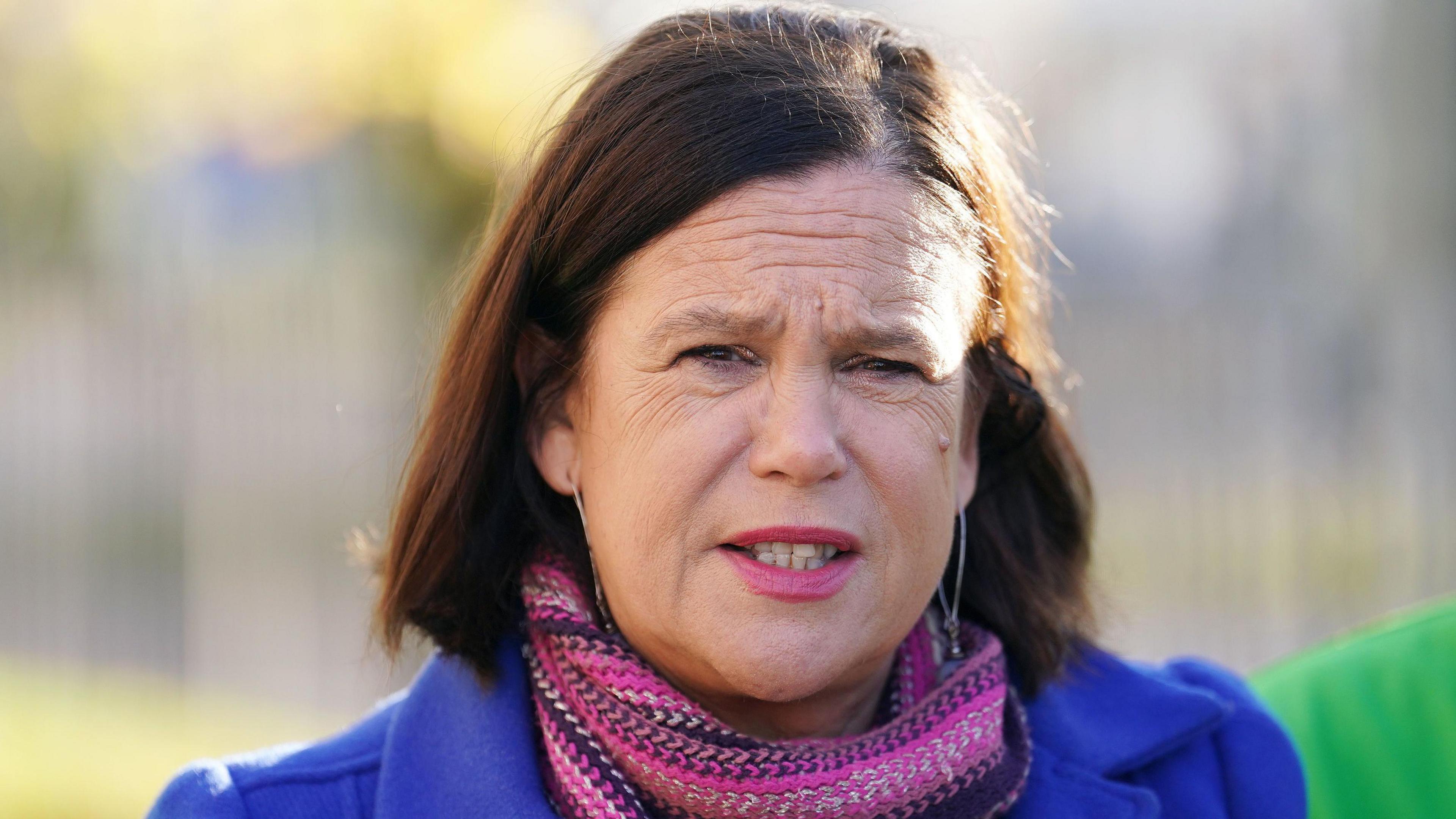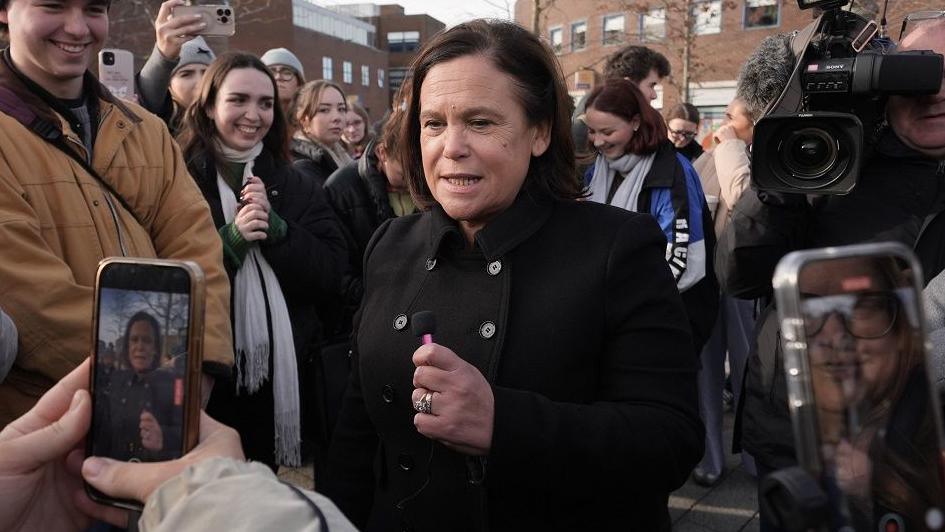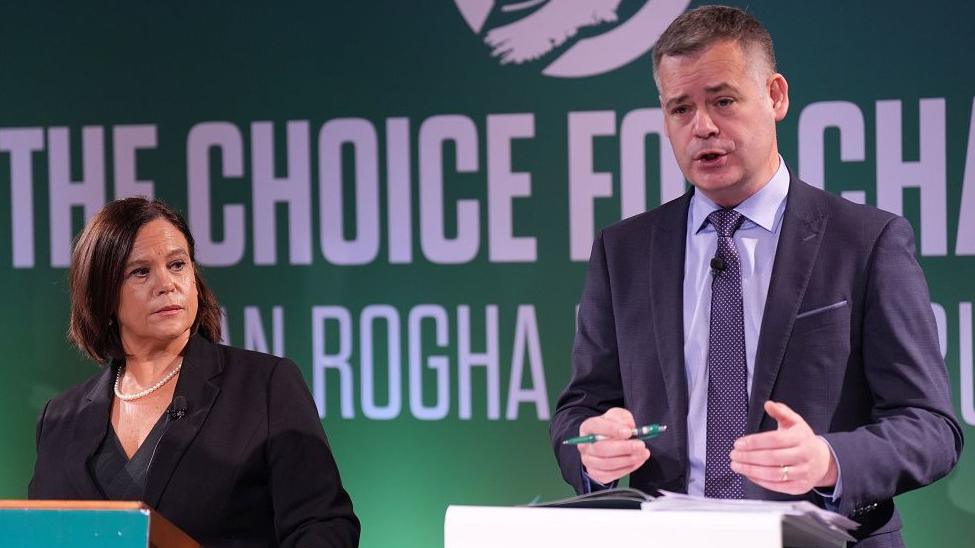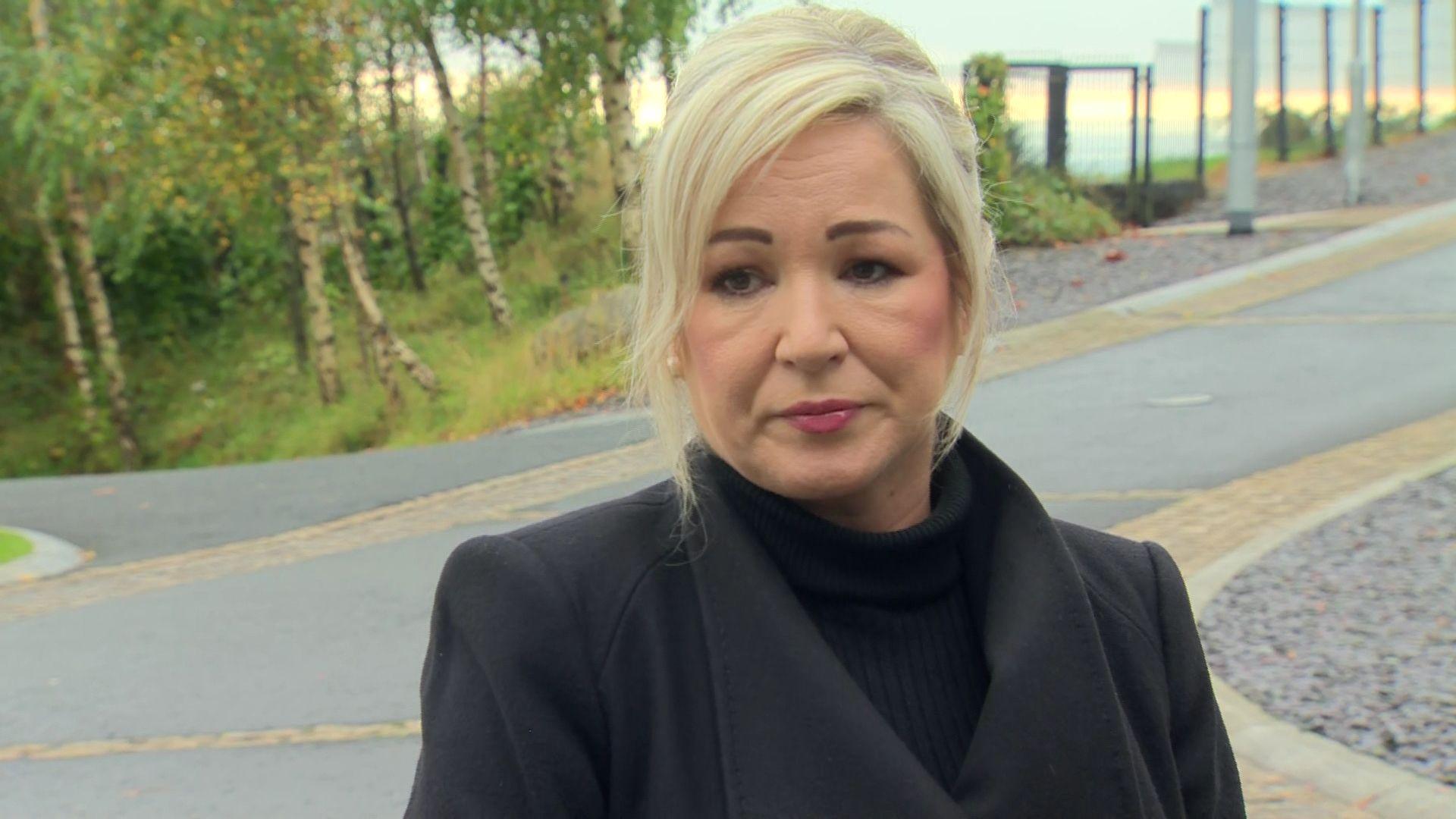Is Mary Lou McDonald still Sinn Féin's biggest asset?

Mary Lou McDonald's popularity has fallen since the last Irish election
- Published
Four years ago it was a question of when and not if Mary Lou McDonald would one day become Ireland's first female taoiseach.
She was the most popular politician in the Republic of Ireland after steering her party to an historic election result, outpolling all her rivals and securing a record number of seats.
In fact, of the 42 candidates Sinn Féin fielded, only five failed to get elected.
McDonald was untouchable and even considered herself the taoiseach-in-waiting.
How the tide has turned.
Her popularity and that of her party has fallen dramatically, hitting rock bottom in the recent European and council elections when Sinn Féin took just 12% of the vote.
In the wake of that result, questions within the party about her leadership started to bubble beneath the surface.
Could Sinn Féin's biggest asset now become a liability facing into one of the most important elections in the party's history?
After a summer of soul searching, Sinn Féin and its president are now trying to bounce back ahead of the poll on Friday.
Mary Lou's missteps
The first big mistake, by her own admission, came when McDonald sided with the government in the referendum to change the definition of the family.
It was heavily defeated and Sinn Féin felt the backlash more than most.
Her judgement was also questioned when she called for Garda Commissioner Drew Harris and Justice Minister Helen McEntee to resign after the Dublin riots.
It was a battle she was never going to win.
The party under her leadership struggled to set out a clear policy on immigration and, as a result, Sinn Féin lost support to the left and right.
In recent months she has been forced to apologise for controversies involving a former party press officer and senator Niall Ó Donnghaile.
She has also lost two TDs along the way and, at times, has struggled under the pressure of relentless questions around her leadership.
'Make or break'
Irish Times political correspondent Jennifer Bray said the drop in McDonald's approval rating is a real concern for the party.
"It has fallen by 12% in the space of a year, which is not a huge amount, but enough to worry the party and place extra pressure on her during the campaign," she said.
"Mary Lou is a tremendous communicator which was crucial in 2020 when she managed to paint the picture of a Fianna Fáil and Fine Gael boys club trying to exclude a woman from debates.
"But this is make or break for her this time, she has to get it right and if they don't there will be big questions about her leadership again."

McDonald speaks to students in Dublin ahead of the election
The Sinn Féin president has so far performed well in the campaign debates and the polls suggest her party is moving in the right direction.
With housing, health and the cost-of-living crisis dominating on the doorsteps, Sinn Féin believes it is now on solid ground.
It is targeting at least 40 seats, which it believes will put the party at the heart of the post-election negotiations to form the next coalition government.
'Used more sparsely'
But former TD Shane Ross, who recently wrote a biography of the Sinn Féin leader, said that, unlike in 2020, the party has not framed its campaign around the Mary Lou McDonald brand.
"Sinn Féin appears to be using Mary Lou more sparsely and whenever she appears she is often flanked by her frontbench team," he said.
"Those like Pearse Doherty and Eoin Ó Broin are more up front and at times leaving Mary Lou in the background, it is a clear tactic."
But Sinn Féin believes it has the strongest frontbench team and is keen to let voters see the faces of its would-be ministers at every opportunity.

McDonald with Pearse Doherty, the party's deputy leader in the Dáil (Irish parliament)
Among them is deputy leader Doherty, who insisted McDonald remains the party's greatest asset.
"Mary Lou is the taoiseach this country needs and she is the person who will sort out health, housing, child care and the cost of living," he said.
"She also has the frontbench team who are ready to deliver from day one."
Sinn Féin's campaign calling for "change" worked well for the party in 2020 and it has adopted the same slogan again.
But if it fails to get into government this time to deliver the change it is promising, then we may see a change within its leadership ranks.
Related topics
- Published16 October 2024
